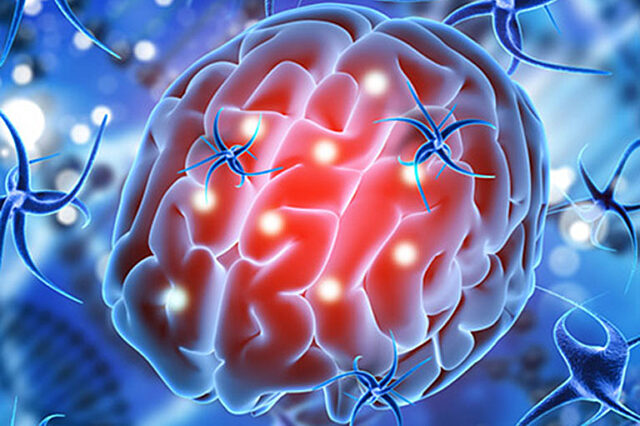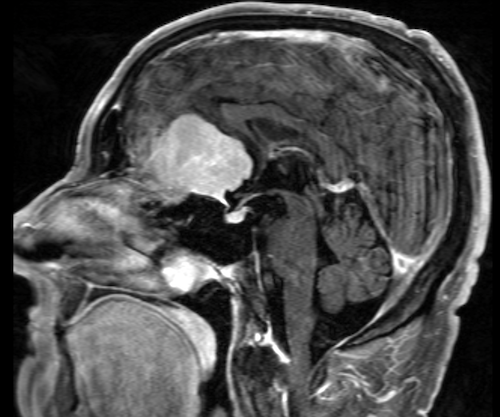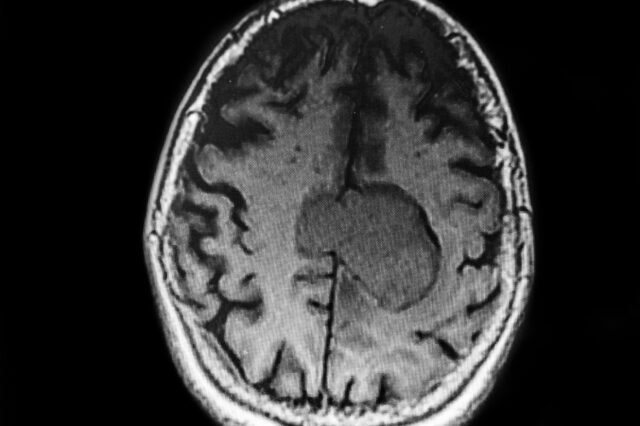Podcast: UF Using AI to Revolutionize the Evaluation of Common Brain Tumors
Researchers in the University of Florida College of Medicine are using artificial intelligence to analyze the chemical characteristics of Meningioma brain…

Update your location to show providers, locations, and services closest to you.
Meningiomas account for about 20-30% of primary brain tumors (i.e., tumors that originate in the head), and there are roughly 20,000 primary brain tumors diagnosed each year in the U.S. These tumors do not originate from the brain tissue itself but arise from the meninges (the membranes that surround the brain and spinal cord).

The vast majority of meningiomas (90%) are benign and are unlikely to spread throughout the body like cancer. They usually have a slow growth rate. However, they can cause serious neurological deficits and require treatment due to encroachment on the brain and critical neurovascular structures nearby. Treatment options include surgery, radiation, and less commonly, chemotherapy.
Skull base meningiomas can be particularly difficult to treat due to their location and proximity to critical brain structures. The physicians at the UF Health Comprehensive Skull Base Surgery Center work with a team approach to manage these complex tumors. Using leading-edge surgical techniques, including endoscopic approaches, radiation strategies and novel medical therapies, UF Health physicians are helping patients achieve cures.
In most cases, it’s not known why some people develop meningiomas, but we have great treatment options.
Meningiomas may not present any significant signs or symptoms because many times they grow slowly. Small ones may not produce any symptoms, while larger ones can result in seizures or other serious issues. The type of symptom may also depend on its location.
Symptoms for meningiomas may include:
Many meningiomas are found incidentally when imaging scans are obtained for a headache/head injury, stroke, trauma or sinus problems. If a physician suspects a meningioma, he/she will diagnose by conducting a neurological exam followed by an imaging test (CT scan or MRI scan).
Meningioma patients at UF Health benefit from the experience of our neurosurgeons, who see over 500 new brain tumor patients per year and perform state-of-the-art techniques for treatment.
Treatment for meningiomas is often:
Many of these treatment options have been developed or refined through the scientific research efforts at the University of Florida, and UF is a destination site for the surgical or radiosurgical treatment of meningiomas. Clinical trial options for patients can be discussed with neuro-oncology.
UF Health employs a team-based approach. Patients are seen by experts in neurosurgery, radiation oncology, neuro-oncology and ENT with input from neuroradiology, neuropathology and medical physicists to ensure patients are treated with the best possible combinations of available therapies. Tumors are often sent for genetic sequencing for a personalized medicine approach.
The outcome with meningiomas is dependent on the tumor grade, size and location. A grade I tumor grows slowly, while a grade II tumor grows more quickly, and a grade III tumor grows and spreads very quickly. For most tumors, the lower the grade, the better the prognosis.
Researchers in the University of Florida College of Medicine are using artificial intelligence to analyze the chemical characteristics of Meningioma brain…

November 15, 2023
University of Florida Health researchers have deployed artificial intelligence to refine and accelerate the evaluation of a common type of brain tumor. The…
AI at UF, Department of Pathology, Immunology, and Laboratory Medicine, +3 more
